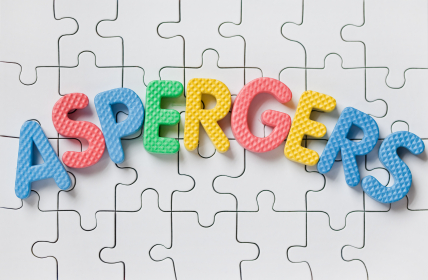We help parents get a better understanding of how to help their Autistic Child.
Symptoms Of Aspergers In Children

The symptoms of aspergers are a little different than those of autism in toddlers, and it’s important to know the differences.
Aspergers is categorized as a less severe case of autism and is characterized by a variety of symptoms.
Parents that are concerned about certain behaviors their child may be exhibiting need to know and understand this disorder in order to know how to cope with it and help their child.
The symptoms of Aspergers, much like autism, begin to present themselves by the age of 3 when they are most obvious. This disorder can be mistaken for autism is some cases, so getting more than one opinion is advisable.
Who Discovered Asperpers Syndrome?
Aspergers Syndrome was originally discovered by Hans Asperger in 1944. He was a pediatrician in Austria.
He noticed that while the 4 children he first observed with what is now Aspergers, had problems with interacting on a social level, but had normal intelligence levels.
 These children were clumsy, experienced no empathy towards their peers and lacked the ability to express themselves through non-verbal communication. He felt that this was different from autism even though some of the symptoms were similar in nature.
These children were clumsy, experienced no empathy towards their peers and lacked the ability to express themselves through non-verbal communication. He felt that this was different from autism even though some of the symptoms were similar in nature.
This has been found to be true.
While some of the symptoms of Aspergers are similar in nature to autism, this particular disorder is different and with it, presents different symptoms.
Here are the most common symptoms of Aspergers.
- Talking incessantly about certain subjects that they favor without actually being able to make a point.
- Their conversation is more random and is more like a list of facts and/or statistics as opposed to being conversational.
- Children with Aspergers tend to approach others to talk to them, unlike those with autism who are withdrawn. However, they are isolated from society due to their lack of social skills and narrow conversational subjects. They exhibit eccentric or inappropriate behaviors that isolate them.
- The speech pattern of a child with this syndrome is one of the most noticable symptoms. They usually speak in a monotone voice or with odd inflections in their speech patterns. They also have no concept of matching their voice volume to a situation. You will need to remind them to use indoor voices in cetain circumstances.
- They tend to develop depression and/or anxiety early in their young adult life after being active in childhood.
- Developmental delays are symptomatic of Aspergers. They may have trouble playing catch or even riding a bike.
 There have been no real developments in this disorder to find out what actually causes it, but it is believed to be genetic in some cases.
There have been no real developments in this disorder to find out what actually causes it, but it is believed to be genetic in some cases.
The symptoms of Aspergers have been found to be related to brain abnormalities similar to those seen with autism.
More research is being done to try to uncover what can cause this disorder. There is no cure, but there are treatments and therapies that can help manage it.
You may also be interested in reading about symptoms of aspergers in Teens and adolescents.



 Adolescents and teenagers with Asperger’s syndrome have deficits in three main areas: physical coordination, communication and development of various interests.
Adolescents and teenagers with Asperger’s syndrome have deficits in three main areas: physical coordination, communication and development of various interests. It is particularly important to understand that Asperger’s is a lifelong condition. However, it may stabilize over time and significant improvements may be seen. Most individuals with Asperger’s Syndrome are able to learn and interpret a range of social skills and many are able to live normal lives. In fact, some typical traits of Asperger’s Syndrome such as focused interests and attention to detail can increase chances of career success. Many adults are usually diagnosed with Asperger’s Syndrome when seeking help for other related issues such as depression and anxiety. However, diagnosis of Asperger’s Syndrome should be made by a medical professional to rule out other related conditions and discuss proper interventions.
It is particularly important to understand that Asperger’s is a lifelong condition. However, it may stabilize over time and significant improvements may be seen. Most individuals with Asperger’s Syndrome are able to learn and interpret a range of social skills and many are able to live normal lives. In fact, some typical traits of Asperger’s Syndrome such as focused interests and attention to detail can increase chances of career success. Many adults are usually diagnosed with Asperger’s Syndrome when seeking help for other related issues such as depression and anxiety. However, diagnosis of Asperger’s Syndrome should be made by a medical professional to rule out other related conditions and discuss proper interventions.